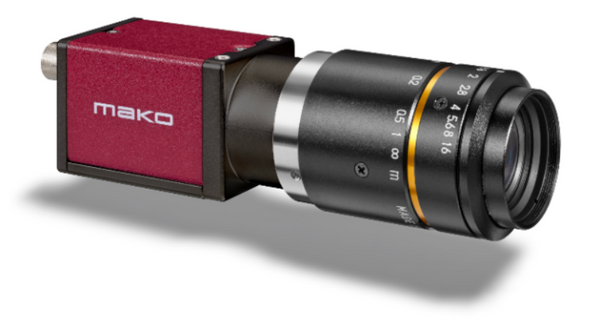In the process of lithium battery production line, machine vision inspection is rapidly replacing traditional manual inspection. On the one hand, due to the many and complex production processes of lithium batteries, machine vision inspection can greatly improve the reliability, stability and production efficiency of products, while solving the problem of continuously rising labor costs.
On the other hand, different processes require different types of camera products for inspection, which puts forward higher requirements on the accuracy, imaging authenticity and product line types of vision systems, especially machine vision cameras. This also means that only companies with rich development experience and profound technical strength can reap the market dividends brought by the new round of expansion of power batteries. (Extended reading: Lithium-ion machine vision "fires")
As a German machine vision camera manufacturer with a history of 32 years, Allied Vision has entered the field of lithium battery visual inspection last year. With its high-quality and stable imaging quality, as well as its reputation for ensuring lithium battery inspection efficiency and yield to the greatest extent, Allied Vision has accelerated in the lithium battery market.
At present, Allied Vision has established partnerships with a number of lithium battery equipment manufacturers, and has become one of the certified suppliers of camera products from many domestic lithium battery manufacturers.
Due to the requirements of long-distance transmission and detection stability in the production process, lithium battery detection equipment mainly adopts Gigabit Ethernet visual interface cameras. The Gigabit Ethernet visual interface has the characteristics of long-distance transmission, data security and stability, and is more suitable for lithium battery production testing.
According to Allied Vision, the company's existing Mako and Manta products are very stable and mature Gigabit Ethernet camera products, which have been widely used in many aspects of lithium battery production and testing, including coating, winding/lamination, sealing, into the shell, packaging, etc.
The Mako camera body is extremely compact and affordable, combining industrial-grade performance with a wealth of features. The GigE-Vision compatible interface on the camera supports longer transmission distances (up to 100 meters) while ensuring connection reliability.
At the same time, the support of the two functions of power over Ethernet and Ethernet trigger realizes a single-cable connection solution, which greatly simplifies the system setup steps and optimizes the cost. Mako cameras support advanced triggering features such as the High Precision Time Synchronization Protocol (PTP) for perfect synchronization with other devices within a multi-camera system. This feature is ideal for multi-camera applications in lithium battery production.

Offering the widest range of sensor options and a complete set of advanced features, Manta is the most versatile Gigabit Vision camera family from Allied Vision. The range includes a large number of modular options, including angled and board-level versions, allowing the camera to be integrated into almost any application. Manta's advanced feature set simplifies setup for multi-camera applications, reduces overall wiring effort, and keeps costs manageable.
It is worth mentioning that from the perspective of multi-process detection of power batteries, the demand for machine vision camera products is also constantly subdivided.
Allied Vision has a very rich product line of machine vision cameras, from the compact Alvium and Mako series to the high-resolution Prosilica GT series, covering a wide range of sensor resolutions, spectral sensitivity, frame rates and functions. Inspection applications provide the most suitable camera model.
In addition, the company's modular product concept enables easy, flexible and cost-effective customization of camera products according to customers' specific needs.
As a member company of TKH Vision Group, Allied Vision can also provide customers with many product lines of other member companies, involving line scan cameras, ultra-high resolution cameras, high-speed cameras and so on. Ordinary camera manufacturers cannot cover complete categories of products, but Allied Vision, with the help of TKH Vision Group, can provide customers with the most complete product chain, which can cover almost all lithium battery detection applications.
In the face of the rapid expansion of power battery production opportunities around the world, Allied Vision is also constantly adjusting its product strategy and market rhythm.
Allied Vision said that with the start of a new round of capacity expansion for power batteries, the detection range using machine vision is also expanding. With the increase in the number of machine vision cameras used on the production line, in addition to higher requirements for camera stability and accuracy, equipment manufacturers also put forward higher requirements for procurement costs.
Allied Vision plans to launch the Alvium 2000 G1/G5 Gigabit/Five Gigabit cameras this year. Compared with the traditional Mako and Manta models, the G1/G5 is more compact and more cost-effective.
The Alvium 2000 G5 is Allied Vision's first 5 Gigabit Ethernet camera, and it is also the smallest and cheapest 5 Gigabit Ethernet camera on the market. The G5 camera can achieve higher bandwidth with the same resolution, increase inspection speed and improve production efficiency. Under the ever-increasing detection accuracy and speed requirements, the Alvium 2000 G5 camera is undoubtedly an ideal choice for future-oriented lithium battery detection technology.

